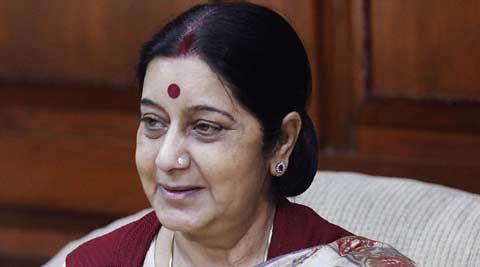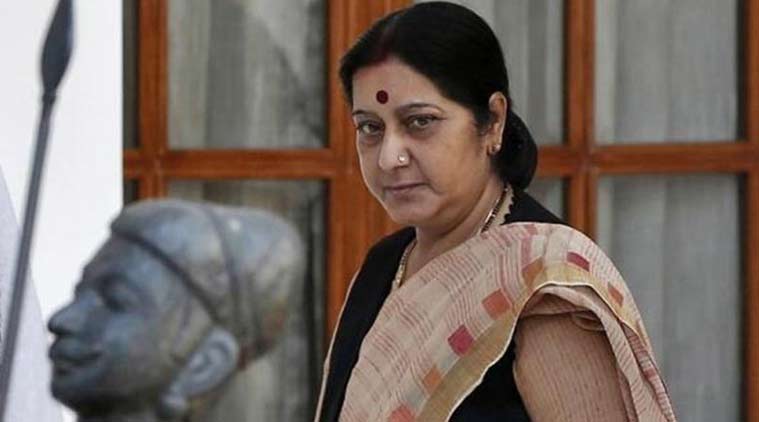Opinion Sushma Swaraj’s way
She reached out to the Opposition to get the Bangladesh LBA bill passed unanimously.

 External Affairs Minister Sushma Swaraj. (Source: Reuters photo)
External Affairs Minister Sushma Swaraj. (Source: Reuters photo)
In the Rajya Sabha, a rare moment was witnessed on Wednesday, when it passed the Bangladesh Land Boundary Agreement bill unanimously. The Opposition credited External Affairs Minister Sushma Swaraj, who piloted the bill, with cajoling them to support it. Congress MP Hussain Dalwai summed it up: “When the language is right and the intention is to take everyone on board, then big tasks can be accomplished. You have proved this.” Swaraj said her government was only completing a process initiated by the UPA and walked across the aisle to greet former Prime Minister Manmohan Singh. Her confession that the BJP, under pressure from the party’s Assam unit, erred by opposing the bill, helped win over the Congress.
There is a lesson here for the Narendra Modi government, which needs bipartisan support in the Rajya Sabha to push through important legislation. The Congress, still smarting from the Lok Sabha poll defeat, appears to be in no mood to let the government have it easy in Parliament at a time when the Congress’s near decimation and its own heady Lok Sabha majority seems to have blinded the government to the fact that it is in a minority in the Upper House. Important legislation — including the GST and land acquisition bills — is held up because a hostile Opposition refuses to let them pass. The Sushma moment reveals that it is still possible for the government to persuade the Opposition.
Politics is about negotiation and consensus-building, and in Parliament, on matters of national importance, the lead has to come from the government. The Modi administration could learn from past instances of this kind, as when a government put forward an Opposition leader as its voice at an international forum. When Narasimha Rao was prime minister, he got the BJP parliamentary party head, Atal Bihari Vajpayee, to lead an Indian delegation to a human rights summit in Geneva. Even amid disagreements over policy, Parliament need not be an arena of permanent conflict.



